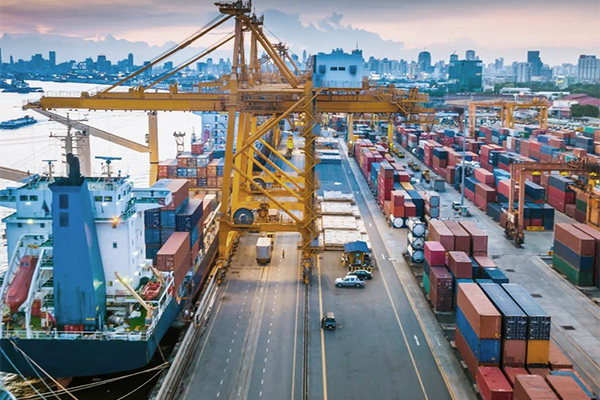The Biden administration recently announced a deal with the European Union to partially roll back Trump-era tariffs on steel and aluminum imports in an attempt to reduce prices for U.S. consumers amid rising inflation and supply chain concerns.
But some argue the deal won’t provide enough relief, particularly as parties across retail, food and other consumer industries continue to grapple with supply chain challenges from COVID-19, labor shortages and geopolitical conflicts.
As companies brace for impact, is there more they can be doing now to prepare and mitigate disruption? And how much impact will the EU deal have in reality?
Doreen Edelman, partner and chair of the global trade and policy practice at Lowenstein Sandler, who has been advising clients on related matters throughout the pandemic, outlines the biggest issues her clients are facing as the holidays loom and disruptions increasingly harm business.
Furthermore, she shares here views on the unique issues different industries are facing by way of disruption.
“There are several things companies can do,” she advises. “Obviously they need to stay engaged and hands-on. Make sure paperwork and advanced CBP filings are in order. Contact everyone in the import supply chain to ensure your products are a priority known to all parties in the import chain. Ensure your classifications, markings, and country of origins representations are accurate, complete and don’t trigger CBP questions.”
She adds that supply chain managers should have a good broker who is well liked with CBP.
“If practical, consider air freight options. Review your contracts for requirements, recourse and options. And look for ways to mitigate risks in advance. Work with shippers and carriers to consider alternative ports and know the accurate timelines and demurrage costs and options in advance. Bottom line.. be as prepared as possible for foreseeable risks,” she says.
Laura Fraedrich, senior counsel at Lowenstein Sandler, adds that one impact of the EU deal to place tariff-rate quotas for steel and aluminum from the EU will be to provide U.S. manufacturers with a cheaper source of foreign steel.
“This will help U.S. manufacturers be more competitive in the world market while at the same time helping the EU steel and aluminum manufacturers maintain their production,” she says. “The move also reinforces the Biden Administration’s vow to re-engage our allies in bilateral and multilateral negotiations on commercial issues to create a more unified front related to threats from countries such as China and Russia. This deal may be the beginning of similar deals for other countries and deeper negotiations with the EU on trade issues.”
SC
MR


Latest Supply Chain News
- Few executives believe their supply chains can respond quickly to disruptions
- Technology’s role in mending supply chain fragility after recent disruptions
- Tech investments bring revenue increases, survey finds
- Survey reveals strategies for addressing supply chain, logistics labor shortages
- Israel, Ukraine aid package to increase pressure on aerospace and defense supply chains
- More News
Latest Podcast

 Explore
Explore
Business Management News
- Few executives believe their supply chains can respond quickly to disruptions
- Technology’s role in mending supply chain fragility after recent disruptions
- Survey reveals strategies for addressing supply chain, logistics labor shortages
- How CPG brands can deliver on supplier diversity promises
- How S&OP provides the answer to in-demand products
- AI, virtual reality is bringing experiential learning into the modern age
- More Business Management
Latest Business Management Resources

Subscribe

Supply Chain Management Review delivers the best industry content.

Editors’ Picks





